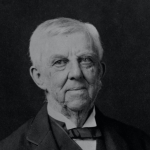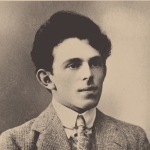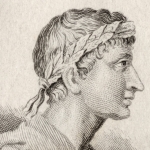Oh, there are times
When all this fret and tumult that we hear
Do seem more stale than to the sexton’s ear
His own dull chimes.
Ding dong! ding dong!
Over a pent volcano,—woe is me
All the day long!
From crib to shroud!
Nurse o’er our cradles screameth lullaby,
And friends in boots tramp round us as we die,
Snuffling aloud.
At morning’s call
The small-voiced pug-dog welcomes in the sun,
And flea-bit mongrels, wakening one by one,
Give answer all.
When evening dim
Draws round us, then the lonely caterwaul,
Tart solo, sour duet, and general squall,—
These are our hymn.
Women, with tongues
Like polar needles, ever on the jar;
Men, plugless word-spouts, whose deep fountains are
Within their lungs.
children, with drums
Strapped round them by the fond paternal ass;
Peripatetics with a blade of grass
Between their thumbs.
Vagrants, whose arts
Have caged some devil in their mad machine,
Which grinding, squeaks, with husky groans between,
Come out by starts.
Cockneys that kill
Thin horses of a Sunday,—men, with clams,
Hoarse as young bisons roaring for their dams
From hill to hill.
Soldiers, with guns,
Making a nuisance of the blessed air,
Child-crying bellman, children in despair,
Screeching for buns.
Storms, thunders, waves!
Howl, crash, and bellow till ye get your fill;
Ye sometimes rest; men never can be still
But in their graves.




















Comment form: